“We need a fresh encounter with Christ, not a campaign to make Europe Christian again”
Missiologist Jim Memory looks at the crises and opportunities Europeans have faced in the last decade.
CORDOBA · 26 FEBRUARY 2020 · 16:39 CET
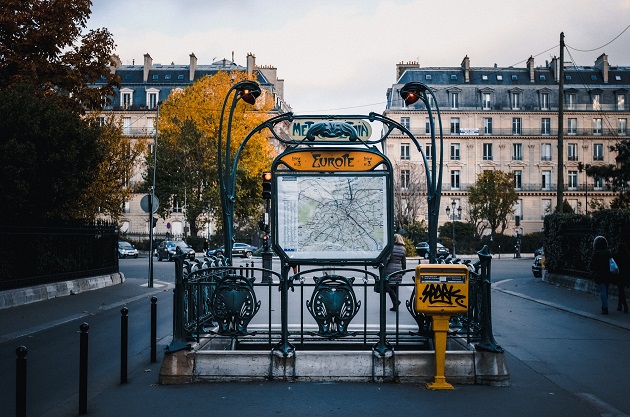
Europe is now different than it was 10 years ago. Several crises have changed the way we perceive the world and see ourselves. What is the role of the church in this new scenario?
In the series of interviews on the last decade, Evangelical Focus spoke to Jim Memory, to address the changes our continent has suffered since 2010.
Jim is a church planter from the UK and a lecturer of European Mission at Redcliffe College. He also leads the ‘Vision and Strategy group’ of the European Christian Mission, and is a member of the organising committee of the Lausanne Europe 2020 gathering.
[To listen to the audio version of this interview, go to the bottom of the page]
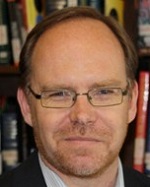
Answer. Well, the question raises the question of what ‘soul searching’ is. It has to do with thinking about your identity – what your motives are and whether the course of your life is the correct one. There is certainly a sense that Europe has been on a constant process of soul searching in recent history, not least because Europeans struggle to agree exactly on what Europe is.
For a long time, those tensions were held in check. Particularly with the process of enlargement of the European Union, which gave an economic benefit to many of the new countries and provided cheap labour for many of the others. But ‘More Europe’ as it was the slogan for a long time in the EU, is not really an answer if you cannot agree on what Europe actually is.
Over these last 10 years we have had an economic crisis, a sovereign debt crisis, a refugee crisis, resurgent nationalism, and now the departure of one of the big four contributors of the EU – the UK. It is no accident that President Emmanuel Macron [France] has announced a two-year long conference on the future of Europe, which will begin in May this year. So, I think it is true to say that there has been a soul searching.
Some years ago, the former President of the European Commission, Jacques Delors, said that Europe needed a ‘secular soul’. It reminded me of the author Julian Barnes, who once wrote: ‘I don’t believe in God but I miss him’. Many Europeans are very forthright in their secular ideals but they recognise that with the loss of Christianity as the uniting ideal in Europe, something very significant is now missing. We seem to suffer a sort of amnesia when it comes to our Christian roots – or perhaps it is more a case of selective amnesia in which we choose not to remember.
The reality of course is that almost every sphere of European life has been hugely impacted by Christianity and by the Bible: the law, politics, the arts, family… The church needs to resist the pressure of this collective amnesia and remind people constantly of our Christian heritage. That is a task for all of us.
But having said that, I think it is very important to add that we need to be careful that we do not fall into a sort of nostalgia of a ‘glorious Christian past’ in Europe. Christian history in Europe is very ugly: it is full of petty theological debates, many of those leading to bloody violent wars. There have been terrible atrocities committed in the name of Christianity: abuses of women, children, minorities and so on.
So, what Europe needs is a fresh encounter with the gospel of Jesus Christ, not some sort of campaign to ‘make Europe Christian again’.
Q. One of the crises you mentioned is the refugee crisis. Europeans suddenly became aware of it in 2015. Some Christians later have re-named it as a “refugee opportunity”. What has the church done?
A. The Christian response to the refugee crisis has been on one hand, amazing, and on the other, a bit troubling.
We saw Christians go to Lesbos and many other places where the refugees were arriving, providing direct help when they first came. And we saw many, many more churches provide help when they arrived in the countries of reception. Some local churches turned themselves upside down to offer welcome and practical help to refugees. It was very inspiring in many cases.
Since then, thousands and thousands have come to faith. Especially the Iranians, but not only them. At a conference I went to at the end of last year I came across Christians from Pakistan, Iraq, Somalia, Syria, Egypt, and many other places. All these people where leading churches in cities across Europe, and many had only come here as a result of the refugee crisis. So yes, their presence is a huge opportunity, an opportunity to reach people that otherwise would never be here and hearing the gospel. People who live in our very street that in previous times were in closed countries.
I also think it is a huge opportunity for Europe, for a common witness together, to live out this new society we are meant to be as churches: an international people of God - the new Europeans and the old Europeans worshipping together. And the Lausanne 2020 Gathering and Conversation is about that too. Providing an opportunity to learn and listen to each other. So we made sure that the diaspora leaders are from the very beginning part of it – it is not just that they are invited to ‘our party’ but they are helping to organise it. A very significant percentage of the delegates that will be in Poland in October are from diaspora backgrounds.
But there is a darker side. It is well known that not every country has been equally welcoming. Nationalists have been very quick to paint refugees as a threat, and some Christian leaders have been seduced into that rhetoric of defending Christian Europe from Islamisation. But it is really important to remember that not all migrants are Muslims and that those who come to Europe as ‘cultural Muslims’ are actually quite open to listen to the gospel. We must remember that and remember that love is a much greater motivator than fear when it comes to Christian outreach.
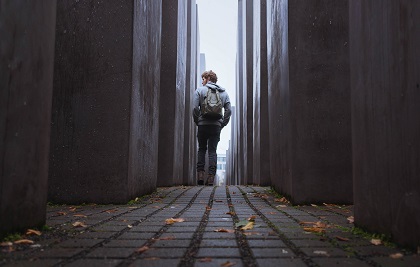
Q. In Europe, as well as in other parts of the world, we’ve see a growing polarisation, with the strengthening of nationalist movements as you just mentioned. We’ve seen this in countries such as the UK, Spain, Italy, Hungary, Germany, Ukraine, Poland… What have been the attitudes of Christians to these new ideological waves?
A. Many Christians have fallen for the politics of fear, which sees all migrants as a threat to the nation, to Christian values or to Christianity itself.
When I was in the UK during the Brexit referendum, I was horrified about some things I heard Christians saying. They saw the EU as an evil secular empire that was trying to destroy Christian Britain. They saw all EU migrants as a threat to the British way of life. This was very sad.
But you will find places all over Europe where people are scared of the other, using the blaming of others as a justification of taking certain political positions.
I do not really think that we have woken up to this reality yet. I think Christians are still largely blind to the nationalism that is around them. We have a very short memory, nationalism has been the cause of many wars in recent European history.
There is a quote from Karl Barth from 1914: “It is simply out of the question that God helps Germans, or the French, or the English. God does not even help us Swiss. God helps justice and love. God helps the kingdom of Heaven, and that exists across all national boundaries”.
I think we need to hear that now as much as the church needed to hear it back then.
Q. In the last decade we’ve also heard the idea that ‘Young people will not have the standard of living their parents once had’. What have we learned from the financial crisis?
A. I am going to be brutally honest, I think we have learned very little. We are still largely addicted to debt, whether that is as states or as people. We are still trying to borrow our way to health wealth and happiness.
The European Central Bank continues to pump in huge quantities of money to keep the European economy afloat, so we are at a level of 20 billion Euro a month going into the European economy – basically we are printing money – that is 40 Euros for every man, woman and child a month. In a family of three, that is 120 Euros a month they are spending more that they have coming in. That gives us an idea of at which the level we are, in effect, borrowing from our children and grandchildren so that we can continue to live like we do today.
I think this is going to stoke quiet significant intergenerational tension in the future. It is a gross injustice on this generation and future generations. On top of that, you have the collapse of the birth rate across Europe, which means that we have a ballooning older population whose pensions depend on an ever smaller base of younger workers.
That’s something the church really does need to speak to and respond to. I have been saying for some time that one of the key frontiers for Christian mission is going to be reaching the third age with the gospel. Someone has said that old people are the only resource on the planet that is actually increasing, and I think that reality is something that the church does need to get to grips with.
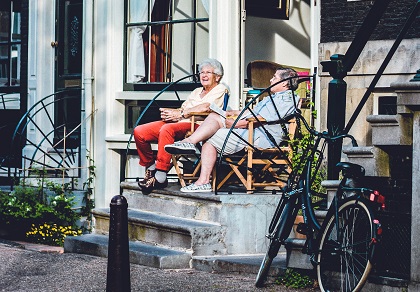
Q. The Council of Europe just issued a resolution about the freedom to express one’s religion at the workplace. But we have seen these years that many have been pressed not to speak about their faith - students at universities, teachers at schools, stewardesses at flying companies… Why is freedom of religion and freedom of speech important in the current moment of Europe?
A. Yes, this is a real challenge. Freedom of expression is often framed in what I consider quiet selfish terms: ‘It is my freedom to say what I like, and my freedom not to hear what I do not like or hurts my feelings’.
We are in a time where there is a tremendous conflict of liberties. There was a time when religious freedom was the primary issue. When the United States constitution was written, the first amendment was about religion, because that was such a hot topic. But today, religion quiet lycomes a long way down the list of priorities for most people, and certainly when it comes to human rights, it comes further down the list.
Often those rights are pitted against one other. Rights about gender and sexuality are faced up against religious rights. Whose rights take priority? There is a huge amount of confusion. And because we do not have a solid ideological underpinning to decide which of those rights is primary, we get confused, and then we often fall into the trap of thinking that this is basically a question of whose rights are in the majority, and whose rights are in the minority.
So, tolerance, which is critical of course to modern liberal democracies, requires us to make a judgement about who are we going to be tolerant to and who are we going to be intolerant to.
Here again, the church needs to be bold and willing to keep pointing back to the Bible as a fundamental source of the authority on which human rights are established. We have something objective to speak into this very confusing debate about human rights in Europe.
Q. Do you think Europe has the capacity to stand up to new giants such as Russia, China and India, which do not share the inherited Christian values and views on human rights?
A. Of course, through history Europe has been massively influential, it pretty much exported Christianity to the world . And in recent times, we have been done a pretty good job in exporting secular ideas to the world as well.
But I do think the very soul searching you referred to at the beginning, that loss of confidence and sense of direction, and the political and economic weakness relative to those other super-states that we are talking about… That all is making people vulnerable, and it I think this is one of the reasons why nationalism is resurging.
But it is worth noticing just how vulnerable some of these countries you mentioned are. The coronavirus has had a huge impact on China and potentially undermined the country in many ways, even culturally and politically in a way we would not have imagined.
So whilst it is true to say that Europe is going through a crisis economically, there is also an opportunity. Christians need to be bold in speaking clearly of the gospel and engaging politically more than we do, speaking apologetically into the debates, challenging this amnesia I was referring to before, and trying to recover something of our Christian authority. We really do need to look into the future. For me, the future is full of hope, not full of fear and despair, but the church really does need to recover its confidence in the gospel.
Yes, Europe is vulnerable ideologically, but that is an opportunity for the gospel.
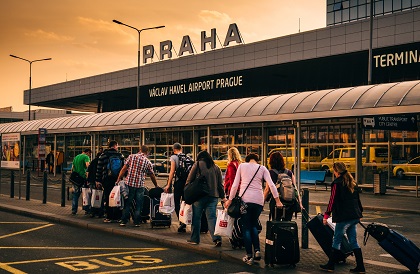
Q. How do you see the future relation between Western Europe and Eastern Europe? What good things can these two blocs learn from each other?
A. To begin with, I think it is important to say that we need to be a bit careful where we draw the line. What constitutes Eastern Europe? What constitutes Western Europe? Many Central Europeans would say they are not Eastern Europeans.
So much of the good stuff that God has done in Europe comes from countries that we currently consider Eastern Europe. But the Soviet Union has had a very long shadow. We are now 30 years on from the fall of the Berlin Wall but there are still huge differences. It is very striking when you go to former East Germany and see how different it is to West Germany, despite all these years of working under the same political leadership. It is still one of the most secular places of Europe and one of the places where church planting is most needed.
It is also important to observe the impact the emigration from the East to the West has had. When we talk about migration we tend to think it is all about immigration. But emigration can be just as devastating. Some countries in Eastern Europe have seen what you only can describe as a collapse in their population, especially of younger people. Some have lost 20-25% of their population in the last 30 years.
I think the most important thing is to listen to each other. To hear the voice of the East, to listen to their perspectives and opinions and to truly desire to work together, not to see it as a one-way street of resources and people, and mission. We need missionaries in the West from Eastern Europe – we need to help them reach other people where they are living and working. So many Romanians, Bulgarians and Polish are living in Western Europe: how can we help them to be effective in their mission here whilst God has them living in this part of the world?
I think we Westerners have to learn from the resilience and the faith of Eastern European Christians. They were able to resist through all those years of Soviet and atheist influence. And we should also learn from their robust spirituality, their prayer and Bible reading, which really puts us to shame sometimes – the way they have sustained their practical spirituality.
We need to see how we can partner more effectively with each other as equals.
Q. Many say the rest of the world should be sending missionaries to Europe. Do you agree? And what should we Europeans learn from fellow believers coming from Asia, Africa, Latin America…?
A. Again, I think we have lots to learn. They bring with them an incredible confidence in the agency of God – that God has brought them here for a purpose. That confidence helps to overcome huge challenges when they arrive.
But equally, this is not a time for us to just swallow everything that comes from outside of Europe as if ‘well, we have failed, we have not been able to reach Europeans in our generation and therefore let’s just them have a go’. We need to recognise that God has brought this new generation of missionaries to Europe and we need to make the most of this massive opportunity that we have today. That is one of the things that gives me most hope, to be able to work with believers from the Global South, and surely helping them not only to reach their own, but reach Europeans as well.
The cities of Europe are full of diaspora churches: Ecuadorian churches, Colombian churches, Brazilian churches… Those churches are great in their first generations at meeting their own, but if they do not learn how to reach the host culture, not only an opportunity for mission will be missed, but the next generation, their children, will no longer feel at home in their parents’ church and they may be lost. So we do need to wrestle with this and consider how we can work together in reaching Europe for Christ.
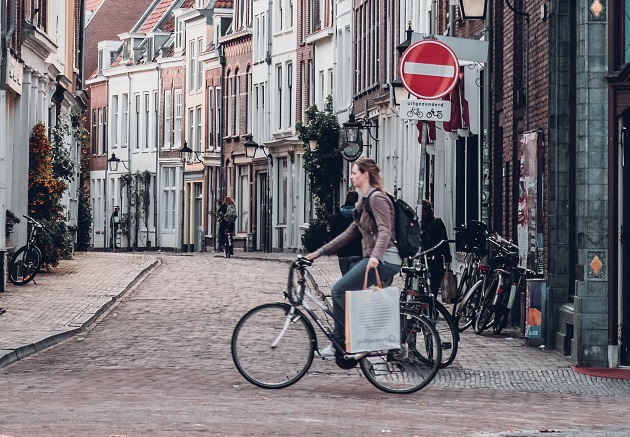
Q. Finally, you are a member of the organising team of the first ever large Lausanne Movement gathering in Europe. It will be in October 2020 in Wisla, Poland. What is the vision and how are you going to encourage the church in Europe for mission in the next decade?
A. The vision of Lausanne Europe 2020 is very much to release the ‘dynamic gospel into the new Europe’. That is something that God is doing already, He does not need Lausanne to do that. But it is the opportunity to connect people who are doing local mission: diaspora churches with ‘old Europeans’, people who are working in church leadership with workplace Christians who are engaged in mission in their profession, younger leaders with older leaders… The heart of this is to bring people together, to inspire them in regards to the mission opportunities of today.
Personally, my involvement has much to do with what we are calling ‘the conversation’. It is an attempt to multiply the impact of the gathering itself. The gathering is for 800 invited leaders but the conversation is much more open than that. What we are trying to do is that in the 9 months leading up to the gathering and the 3 months following, a much broader constituency is engaged so that many more people are part of the conversation. We hope that after the conference there is a true impact in the local communities.
The idea is that resources and connections are multiplied up twelvefold. Just last week we launched the impact groups which we hope that will be the engine for doing that. It is inspiring to think that we can have a little part to play in extending and amplifying what God is doing around Europe.
Published in: Evangelical Focus - europe - “We need a fresh encounter with Christ, not a campaign to make Europe Christian again”
